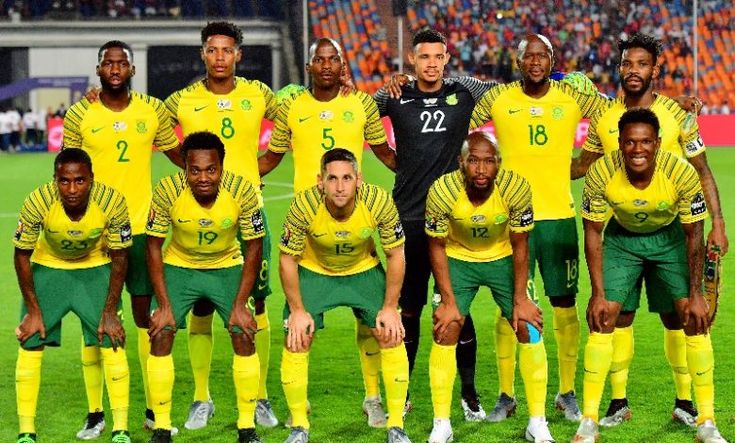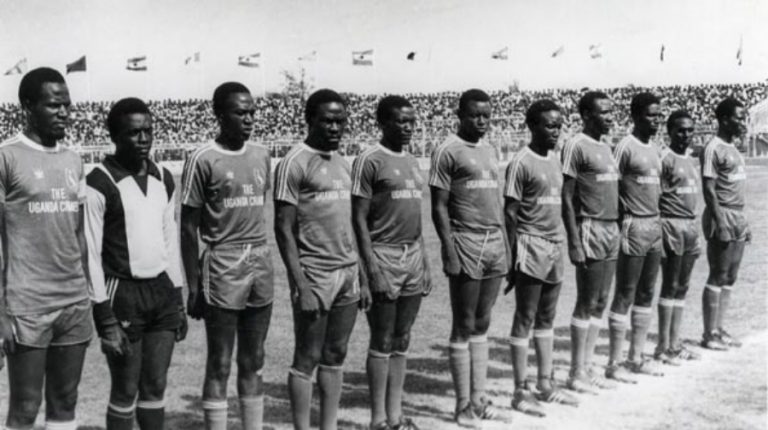“The Future of Football in South Africa: A Nation’s Passion at a Crossroads
Related Articles The Future of Football in South Africa: A Nation’s Passion at a Crossroads
The Future of Football in South Africa: A Nation’s Passion at a Crossroads

Football, or soccer as it’s known in some parts of the world, is more than just a sport in South Africa; it’s a cultural phenomenon, a source of national pride, and a unifying force that transcends social and economic divides. The echoes of the 2010 FIFA World Cup, hosted on South African soil, still reverberate, reminding the nation of the heights it can achieve. However, beneath the surface of fervent fandom lies a complex reality. The future of South African football is at a crossroads, facing a myriad of challenges that must be addressed to unlock its immense potential.
A Legacy of Passion and Potential
South Africa’s football history is rich and vibrant. From the struggles against apartheid, where football served as a symbol of resistance and unity, to the euphoria of winning the 1996 African Cup of Nations (AFCON), the nation has experienced moments of glory that have etched themselves into the collective memory. The passion for the game is undeniable, evident in the packed stadiums, the enthusiastic supporters, and the countless young talents dreaming of making it big.
The country possesses a natural advantage in terms of raw talent. The streets and townships are teeming with gifted players who possess the skill, athleticism, and creativity to compete at the highest levels. However, translating this potential into consistent success on the international stage has proven to be a persistent challenge.
The Challenges: A Multifaceted Problem
Several key challenges hinder the progress of South African football:
-
Development and Infrastructure:
- Grassroots Development: The foundation of any successful footballing nation lies in its grassroots development programs. While efforts have been made, South Africa still lags behind in providing structured and accessible training opportunities for young players, particularly in disadvantaged communities. Many talented youngsters lack access to quality coaching, proper facilities, and organized leagues, limiting their potential to develop into professional players.
- Infrastructure Deficiencies: Many clubs, especially those outside the top-tier Premier Soccer League (PSL), struggle with inadequate infrastructure. Poor training grounds, outdated equipment, and limited access to sports science and medical support hinder player development and performance.
- Youth Academies: While some PSL clubs have invested in youth academies, the quality and effectiveness of these academies vary significantly. There is a need for more comprehensive and standardized youth development programs that focus on long-term player development rather than short-term gains.
-
Professionalism and Governance:
- League Competitiveness: The PSL, while being one of the wealthiest leagues in Africa, has faced criticism for its lack of competitiveness. The dominance of a few clubs, coupled with inconsistent performances from others, has led to a decline in overall league quality.
- Financial Instability: Many clubs outside the PSL struggle with financial instability, leading to player salary disputes, administrative challenges, and even club closures. This instability creates uncertainty for players and undermines the overall integrity of the league.
- Governance Issues: The South African Football Association (SAFA) has faced its share of governance challenges, including allegations of corruption, mismanagement, and lack of transparency. These issues have eroded public trust and hindered the development of the sport.
-
Coaching and Technical Expertise:
- Quality of Coaching: The quality of coaching at all levels of the game needs improvement. Many coaches lack the necessary qualifications, experience, and expertise to effectively develop players and implement modern coaching methodologies.
- Technical Development: There is a need for a more comprehensive and standardized approach to technical development, focusing on improving players’ tactical awareness, decision-making, and overall game intelligence.
- Coach Education: SAFA needs to invest in coach education programs to ensure that coaches at all levels have access to the latest coaching techniques and methodologies.
-
Player Development and Opportunities:
- Lack of Playing Opportunities: Many young players struggle to break into the professional ranks due to limited playing opportunities. Clubs often prefer to sign experienced players rather than giving young talents a chance to prove themselves.
- Player Exodus: The lure of playing in Europe and other foreign leagues has led to a significant exodus of talented South African players. While this can provide valuable experience and exposure, it also deprives the local league of some of its best talents.
- Player Welfare: Issues such as player burnout, mental health challenges, and lack of support for retired players need to be addressed to ensure the overall well-being of players.
-
Transformation and Inclusivity:
- Racial Representation: While significant progress has been made in terms of racial representation in football, challenges still remain. There is a need to ensure that all players, regardless of their race or background, have equal opportunities to succeed.
- Gender Equality: Women’s football in South Africa has made significant strides in recent years, but it still lags behind men’s football in terms of funding, resources, and recognition. More needs to be done to promote and develop women’s football at all levels.
- Disability Football: Football for people with disabilities is often overlooked. Providing opportunities and support for disabled players can promote inclusivity and diversity within the sport.

The Path Forward: A Roadmap for Success
To unlock the full potential of South African football, a comprehensive and multifaceted approach is required. Here are some key strategies that can pave the way for a brighter future:
-
Investing in Grassroots Development:
- Establish Regional Academies: Create regional academies that provide structured training and development programs for talented young players from all backgrounds.
- Improve Coaching Education: Invest in coach education programs to ensure that coaches at all levels have the necessary qualifications and expertise.
- Develop School Football Programs: Strengthen school football programs to provide more opportunities for young players to participate in organized football.
- Provide Access to Facilities: Improve access to quality training facilities and equipment, particularly in disadvantaged communities.
-
Strengthening Professionalism and Governance:
- Enhance League Competitiveness: Implement measures to enhance league competitiveness, such as salary caps, squad size restrictions, and promotion/relegation rules.
- Improve Financial Stability: Provide financial support and guidance to clubs to ensure their long-term sustainability.
- Promote Good Governance: Strengthen SAFA’s governance structures and processes to ensure transparency, accountability, and ethical conduct.
-
Enhancing Coaching and Technical Expertise:
- Attract Top Coaches: Attract top-quality coaches from around the world to work in South Africa and share their expertise.
- Develop Local Coaches: Invest in the development of local coaches through training programs, mentorship opportunities, and international exposure.
- Implement Modern Methodologies: Adopt modern coaching methodologies and sports science techniques to improve player development and performance.
-
Creating Player Opportunities and Support:
- Increase Playing Opportunities: Encourage clubs to give young players more playing opportunities in the professional ranks.
- Support Player Welfare: Provide comprehensive support for player welfare, including mental health services, financial advice, and career guidance.
- Develop Player Pathways: Create clear pathways for players to progress from youth football to the professional ranks and potentially to international leagues.
-
Promoting Transformation and Inclusivity:
- Address Racial Disparities: Implement policies and programs to address racial disparities in football and ensure that all players have equal opportunities.
- Invest in Women’s Football: Increase investment in women’s football to promote its growth and development.
- Support Disability Football: Provide opportunities and support for disabled players to participate in football.
Harnessing Technology and Innovation
The future of football is inextricably linked to technology and innovation. South Africa needs to embrace these advancements to improve player development, enhance fan engagement, and modernize the sport.
- Data Analytics: Utilize data analytics to track player performance, identify areas for improvement, and make data-driven decisions.
- Virtual Reality Training: Implement virtual reality training programs to enhance players’ tactical awareness and decision-making skills.
- Fan Engagement: Utilize social media, mobile apps, and other digital platforms to engage with fans and create a more immersive experience.
- E-Sports: Explore opportunities in e-sports to attract new fans and generate revenue.
Conclusion: A Call to Action
The future of football in South Africa is not predetermined. It will be shaped by the decisions and actions taken by stakeholders at all levels of the game. By addressing the challenges, implementing the right strategies, and embracing innovation, South Africa can unlock its immense potential and reclaim its place among the leading footballing nations in Africa and the world.
It requires a collective effort from SAFA, the PSL, clubs, coaches, players, sponsors, and fans. It requires a commitment to excellence, a passion for the game, and a belief in the power of football to transform lives and unite a nation. The time for action is now. The future of South African football depends on it.
